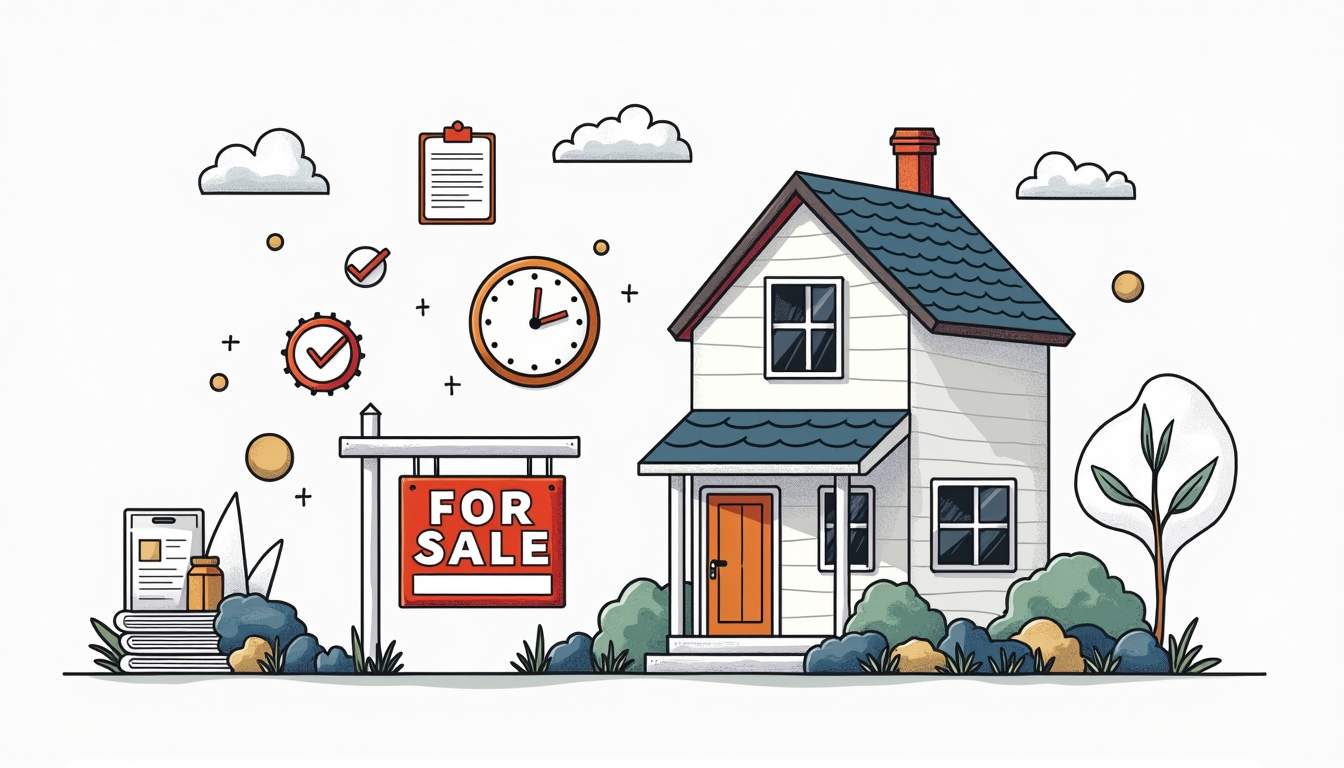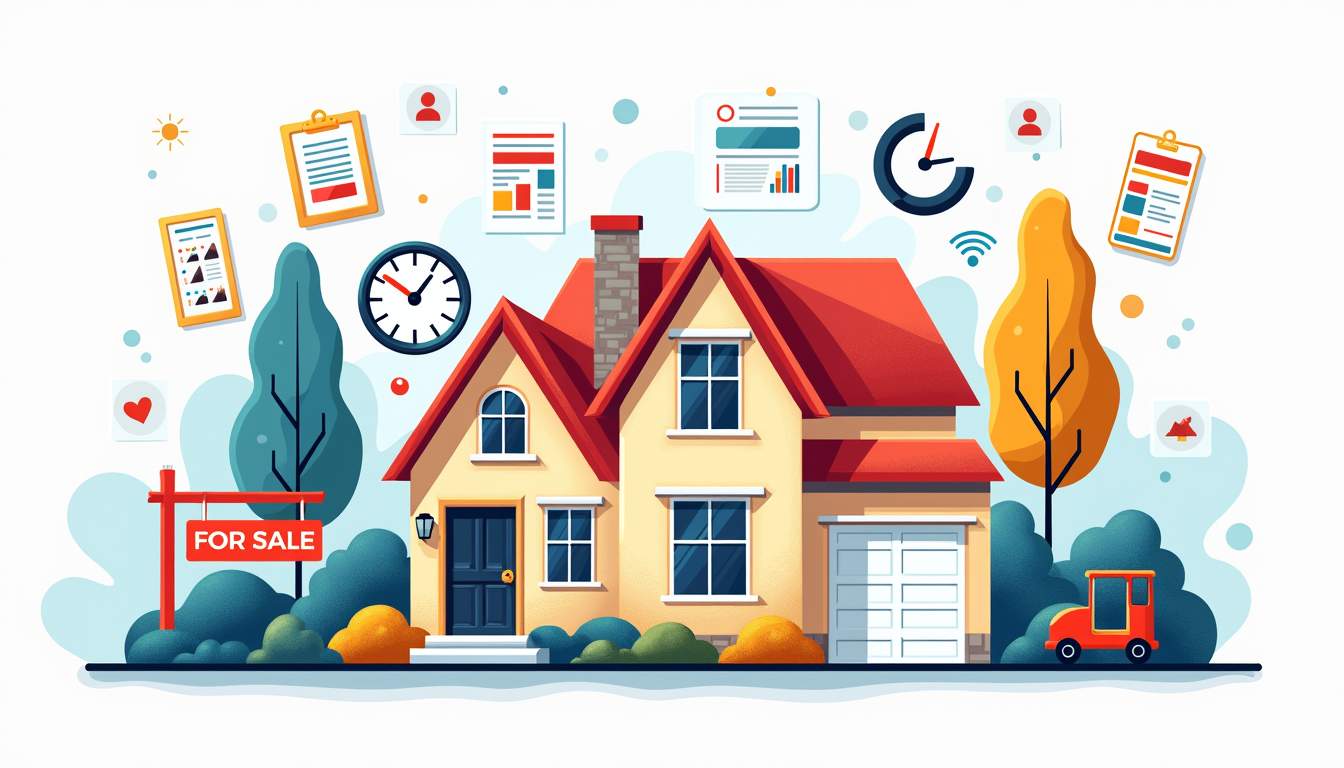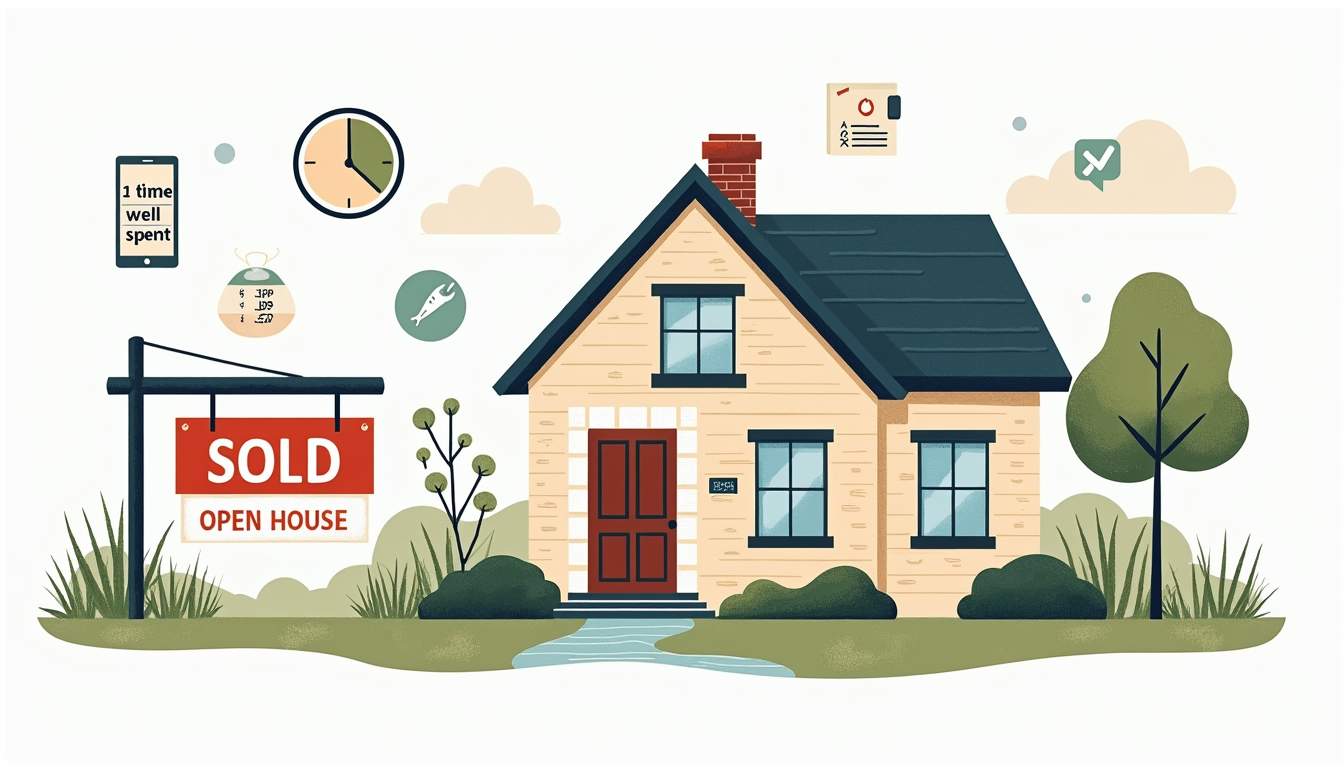
In today's real estate market, many homeowners are considering selling their properties without the assistance of a realtor. Whether it's to save on commission fees or to have more control over the selling process, selling a house independently can be a viable option. This guide will walk you through the essential steps to sell your house fast without a realtor, ensuring a smooth and efficient transaction.
Before diving into the selling process, it's crucial to understand the current real estate market. Knowing the trends and demands can significantly impact how quickly and effectively you sell your home.
Start by researching your local market. Look into recent sales of comparable homes in your area, often referred to as "comps." This will give you a clear picture of what buyers are willing to pay and how your home stacks up against others.
Online resources such as real estate websites, local listings, and market reports can provide valuable insights. Pay attention to the average days on the market, price fluctuations, and buyer preferences. Understanding these factors will help you set a competitive price for your home.
Additionally, consider attending local open houses or real estate seminars to gain firsthand knowledge of buyer behavior and preferences. Networking with local real estate agents can also provide insider information about emerging trends, such as which neighborhoods are gaining popularity or what features are currently in demand. This comprehensive approach will equip you with the knowledge needed to make informed decisions throughout the selling process.
Once you have a grasp of the market, it's time to determine your home's value. You can use online valuation tools, but for a more accurate assessment, consider hiring a professional appraiser. This step is crucial as it sets the foundation for your asking price.
Keep in mind that pricing your home too high can deter potential buyers, while pricing it too low may lead to financial loss. Aim for a fair price that reflects your home's condition, location, and the current market trends. It's also wise to factor in any recent upgrades or renovations you've made, as these can significantly enhance your home's appeal and value.
Moreover, consider the seasonal fluctuations in the real estate market. For instance, spring and summer often see a surge in buyer activity, while winter months may slow down the market. Timing your sale to align with peak buying seasons can further optimize your selling strategy. By taking all these elements into account, you can position your home competitively in the market, increasing your chances of a successful sale.
First impressions matter, especially in real estate. Preparing your home for sale involves making it appealing to potential buyers, which can significantly speed up the selling process.
Start by decluttering your home. Remove personal items, excess furniture, and anything that may distract buyers from envisioning themselves in the space. A clean and organized home creates a welcoming atmosphere and allows buyers to see the potential of each room.
Deep cleaning is also essential. Consider hiring professional cleaners to ensure every corner shines. Pay special attention to kitchens and bathrooms, as these areas often influence buyers' decisions the most. Don't forget to clean windows, as natural light can make your home feel more spacious and inviting. Additionally, freshening up the air with pleasant scents—like baking cookies or using essential oils—can create a warm and inviting environment that lingers in the minds of potential buyers.
Address any minor repairs that could turn off potential buyers. This includes fixing leaky faucets, patching holes in walls, and ensuring that all appliances are in working order. A well-maintained home gives the impression of care and can justify a higher asking price.
If your budget allows, consider making upgrades that can boost your home’s value, such as fresh paint, new fixtures, or landscaping improvements. These investments can pay off significantly when it comes time to sell. For example, a fresh coat of neutral paint can make rooms feel larger and more inviting, while updated lighting fixtures can enhance the overall ambiance. Additionally, curb appeal is crucial; consider planting colorful flowers or adding a new welcome mat to make a great first impression from the moment buyers arrive at your doorstep. These small changes can create a lasting impact and set your home apart in a competitive market.
Once your home is ready, it's time to market it effectively. Without a realtor, you'll need to take on the responsibility of promoting your property.

Leverage online real estate platforms to list your home. Websites such as Zillow, Craigslist, and Facebook Marketplace can help you reach a broad audience. Make sure to include high-quality photos and a detailed description highlighting your home’s best features.
Social media can also be a powerful tool. Share your listing on platforms like Instagram and Twitter, and encourage friends and family to spread the word. The more exposure your home gets, the higher the chances of a quick sale.
Don’t underestimate the power of traditional marketing methods. Placing a “For Sale” sign in your yard can attract local buyers. Ensure the sign is clear, professional, and includes your contact information.
Consider creating flyers or brochures that detail your home’s features and benefits. Distributing these in your neighborhood or at community events can help generate interest.
Once potential buyers start expressing interest, it’s time to show your home. This is a critical step in the selling process, as it allows buyers to experience your property firsthand.
Hosting open houses can draw in multiple buyers at once, creating a sense of urgency. Choose a weekend to hold an open house and promote it through your marketing channels. Make sure your home is clean and welcoming during the event.
Additionally, be flexible with private showings. Potential buyers may have varying schedules, so accommodating their needs can lead to a quicker sale. Always ensure your home is tidy and presentable for these showings.
During showings, be ready to answer questions about your home, the neighborhood, and any recent renovations. Transparency is key; buyers appreciate honesty and are more likely to trust a seller who is forthcoming about their property.
Consider preparing a fact sheet with essential information about the home, such as utility costs, property taxes, and any warranties on appliances. This can help buyers make informed decisions.
When you receive offers, it’s time to negotiate. This stage can be daunting, especially without a realtor, but understanding the process can make it smoother.

Take your time reviewing each offer. Look beyond the price; consider contingencies, closing timelines, and the buyer's financial qualifications. A higher offer may not always be the best choice if it comes with numerous conditions that could delay the sale.
Consult with a real estate attorney if needed, as they can help you understand the legal implications of each offer and ensure you’re making informed decisions.
Don’t hesitate to make counteroffers if the initial offers don’t meet your expectations. Be clear about what you’re willing to negotiate and maintain open communication with potential buyers.
Once you reach an agreement, it’s time to finalize the deal. This typically involves signing a purchase agreement, which outlines the terms of the sale. Ensure all parties understand their responsibilities and timelines moving forward.
The closing process is the final step in selling your home. This is where ownership officially transfers from you to the buyer.
Be aware of the closing costs involved in selling a home, which can include title insurance, transfer taxes, and attorney fees. These costs can vary, so it’s essential to budget accordingly.
Discuss these costs with the buyer upfront to avoid any surprises. Transparency during this stage can help maintain a positive relationship with the buyer, ensuring a smooth closing process.
Before the closing date, the buyer will likely want to conduct a final walkthrough of the property. This is their opportunity to ensure everything is in order and that any agreed-upon repairs have been made.
Be prepared for this walkthrough, as it can influence the buyer's final decision. Address any last-minute concerns promptly to avoid complications during closing.
After the sale is complete, there are a few final steps to consider to ensure a smooth transition.
Once the sale is finalized, cancel your home insurance policy and transfer or cancel utility services. This will help avoid any unnecessary charges and ensure that the new owners can set up their own accounts without issue.
Make sure to inform your utility providers of the change in ownership to prevent any confusion or billing errors.
Maintain records of the sale for your personal files, including the purchase agreement, closing documents, and any correspondence with the buyer. These documents may be necessary for tax purposes or future reference.
Keeping organized records can also help if any issues arise after the sale, providing a clear history of the transaction.
Selling a house without a realtor can be a rewarding experience, offering both financial savings and a sense of accomplishment. By following this step-by-step guide, homeowners can navigate the selling process with confidence, ensuring a quick and successful sale.

From understanding the market to finalizing the deal, each step is crucial in making the process as smooth as possible. With careful preparation, effective marketing, and clear communication, selling a home independently can be a viable and profitable endeavor.
Should I Sell My House or Rent It Out?
How to Sell My House Privately: A Step-by-Step Guide
We purchase homes directly from sellers, offering homeowners a quick, straight-forward sale.Contact us for a free valuation and offer.
get my house valuation now